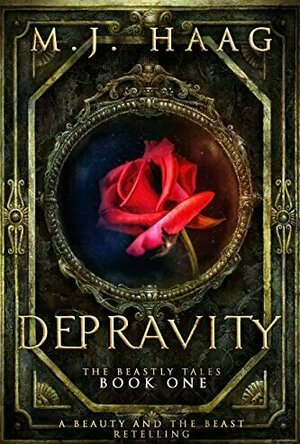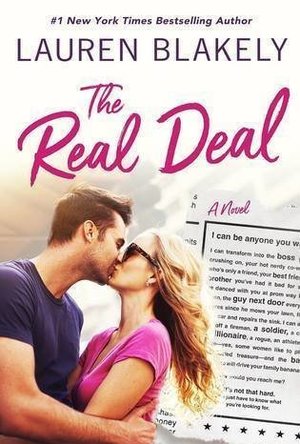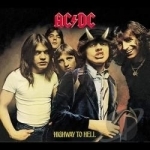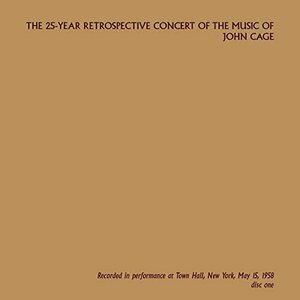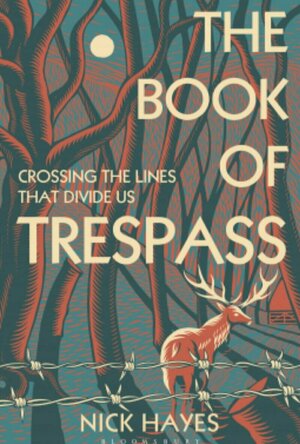ArecRain (8 KP) rated Depravity (Beastly Tales, #1) in Books
Jan 18, 2018
That being said, this series had me from page one and I couldnt put it down until the very last one. I missed a lot of sleep for it I am a huge fan of fairy tale retellings, especially if there erotica involved. This is definitely one of the better retellings of Beauty and the Beast, albeit a very dark one. The female lead is almost raped more times than I can count, abused by her obnoxious sisters, manipulated by an arrogant sorceress, and subjected to dealing with a short tempered man child stuck in a beasts body. Through it all, Benella stays determined and loved her grit.
There are some themes that may not sit well with some people, especially with the Beasts treatment of Benella in the second novel. I think they are missing the point of this story, however. The premise is not just about looking beyond aesthetic value, it is about personal growth. While it is the Beautys purpose to look beyond outer appearances to appreciate what people have on the inside; it is the Beasts role to develop from well a beast to a better person. I feel that most people look past that.
This is a great series for those looking for an adult retelling of Beauty and the Beast and can handle the dark themes and cliff hangers that come with it. If you can accept an anti-hero with faults who falls for a strong woman who can hold her own in a hateful sexist world, then this is definitely the series for you.
Alicia S (193 KP) rated The Real Deal: A Novel in Books
Sep 28, 2018
In preparation of going home to see the family in Connecticut, April has decided that hiring a pretend boyfriend to keep the family off her back is the next best thing after her bestie stand-in has to bail for a job. Tired of being set-up with every guy her family comes across, all in hopes of leading her back to her hometown and everything she is not interested in... she heads to the family reunion with her Craigslist hired boyfriend on her arm and a great backstory.
Turns out, Theo is perfection from the moment they meet. Ready to create any story she requires, it's obvious the sparks fly immediately with these two. Creating fun backstories that feel all too real for a couple that met only a few days ago.
Can't forget the family aspect here... some people have family and never see how wonderful they are and never know how good they have it. Some have no family and only dream of being "harassed" by those who love you and it was beyond heartwarming to watch such a loving group of people together. April clearly has a wonderful family and they so lovingly welcome Theo and his family into theirs.
So heartwarming, this book brought a smile to my face over and over. Didn't want to put it down yet I didn't want it to end!? Such wonderful characters, I loved April's strength, and determination and listening to the two of them together was beyond adorable. Loved that she was so quick, funny and smart and he was just a sweetheart, afraid of his past, afraid of letting her down, afraid this would never be more than a fake weekend... boy was he wrong!? ;-) Highly recommended read and author!!

eDarling - For people looking for a relationship
Social Networking, Entertainment and Stickers
App
eDarling is a serious dating app for the educated, successful and single professional! By take the...
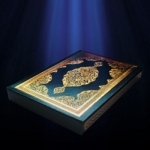
Al Quran Stories ( Islam ) - Authentic Muslim Islamic Stories from the Coran ( Koran, Kuran )
Book and Reference
App
All Praise is due to Allah(Swt) and much peace and many blessings be upon the Messenger of Allah...
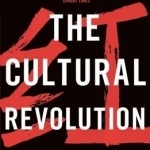
The Cultural Revolution: A People's History, 1962-1976
Book
Acclaimed by the Daily Mail as 'definitive and harrowing' , this is the final volume of 'The...
The Map of Meaningful Work: A Practical Guide to Sustaining Our Humanity
Lani Morris and Marjolein Lips-Wiersma
Book
This book introduces a "Map of Meaning" called the Holistic Development Model, which provides a...

Cheryl Saban's Guide to a Happy and Mindful Life
Book
A beautifully illustrated pocket-size gift book that explores the experience of mindfulness through...
Rick Astley recommended Highway to Hell by AC/DC in Music (curated)
Lee Ronaldo recommended The 25-Year Retrospective Concert of the Music of John Cage by John Cage in Music (curated)
ClareR (6062 KP) rated The Book of Trespass: Crossing the Lines That Divide Us in Books
Sep 6, 2020
Fast forward a few centuries, the few rich people still own the majority of the land in the UK, and seem to guard it jealously. There’s no way that they can use all that land, but they won’t share it. In fact, the law backs them up - if you trespass, you could be prosecuted.
Nick Hayes has written a book where he charts the history of how land has changed ownership from the many to the few, the links to colonisation and the slave trade, those who have fought to keep us and our world safe and he stages his own rebellions throughout the book. He takes us over the fences and walls to look at the land we wouldn’t otherwise see (and the descriptions are beautiful, you can feel the love he has for the countryside). He shows us that this is not a communist ideal, as some would think. In countries such as Sweden, Norway and closer to home, Scotland, there is a culture of space for all. Maybe if we could all use this land, we would learn how to best look after it.
The added bonus were the pictures (woodcuts) - bold and beautiful.
I’m already trying to think of people who would appreciate this book as a gift. It’s definitely a book to share.
Many thanks to The Pigeonhole and Nick Hayes for making this book available for us to read!
